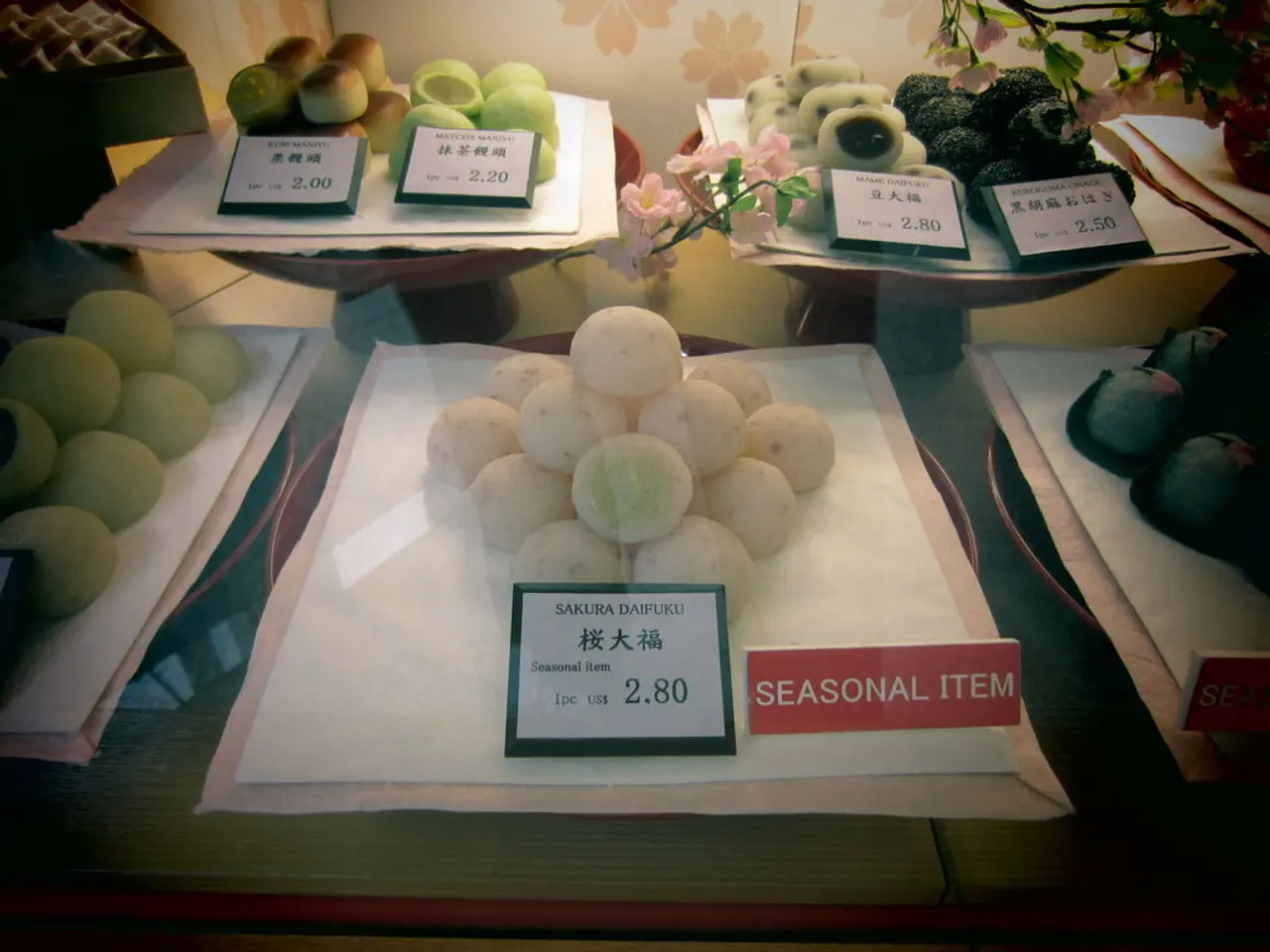Government's move to keep prices low proved unpopular amongst the producer community
In the midst of economic pressures and inflation, the Russian government is considering a price freeze on socially significant food products to combat rising costs. However, food industry associations have voiced their opposition to this measure, fearing that it could make production unprofitable and disrupt supply chains.
The proposed price freeze, as advised by the Center for Macroeconomic Analysis and Short-Term Forecasting, would apply to staples like meat, eggs, bread, and potatoes. The center's advice, however, does not specify the duration of the proposed price freeze.
Artem Belov, the head of "Soюzmoloко", has expressed concerns about the risks of strict price control for food, suggesting it could decrease the attractiveness of the industry for investors. He believes that introducing "price corridors" could negatively impact the food industry.
Similarly, Sergei Yushin, the head of the meat association, fears that food producers may find it unprofitable to operate under price growth regulation, potentially leading to factory closures.
The concerns raised by Belov and Yushin are related to the potential impact of price regulation on the attractiveness of the food industry for investors and the profitability of food producers. They argue that production costs depend on many factors like electricity, fuel, and logistics, which are rising, so fixed prices would not cover these expenses.
Moreover, they warn that price controls would not address inflation caused largely by retailer markups and would create an uneven competitive environment, unfairly burdening producers and wholesalers. Retailers also caution that prolonged price fixing carries additional market risks and prefer negotiated contracts that consider regional and cost variations.
In the broader economic context, Russia is experiencing severe inflation and economic pressures linked to ongoing war impacts, depleted financial reserves, and structural issues affecting agricultural sectors. These conditions heighten producer concerns about any measures that might cap their revenue without addressing underlying cost issues.
The publication "Kommersant" reported these concerns, citing sources. It is important to note that the Russian government has not yet officially announced its decision regarding the proposed price freeze. The proposed measure by the center does not include vegetables, dairy, or poultry products.
[1] Kommersant, "Food producers in Russia oppose the authorities' initiative to curb the rise in prices for vegetable and dairy products." Accessed on [date]. [2] Center for Macroeconomic Analysis and Short-Term Forecasting, "Advice to the Russian government on addressing rising food prices." Accessed on [date]. [3] "Russian food industry associations express concerns about price regulation." Kommersant, [date]. [4] "Inflation and economic pressures in Russia." Financial Times, [date].
- The Russian food industry associations, including Soюzmoloко and the meat association, have voiced their opposition to the proposed price freeze on socially significant food products, citing concerns about its potential impact on the attractiveness of the industry for investors and the profitability of food producers.
- With the Russian government considering a price freeze on staples like meat, eggs, bread, and potatoes, various industry experts warn that the measure could create an uneven competitive environment, unfairly burdening producers and wholesalers, and not address inflation caused by retailer markups.




